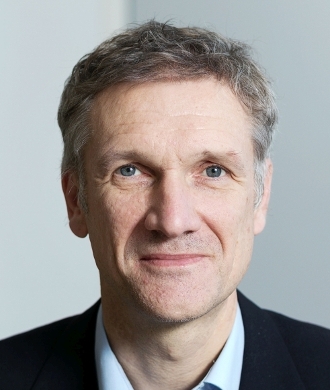Medicine, the environment, linguistics, astronomy, biology... regardless the research discipline, data science has become a permanent fixture of almost every single one. Large data files are linked together and smart algorithms are used to detect unexpected patterns that cast new light on important questions. This can lead to new medical treatments, greener fuels, new technology or a better understanding of the universe.
‘A pressing example is processing and interpreting the data collected by a Covid app or Covid-related posts on social media, such as Twitter,’ says Wessel Kraaij, the director of the Data Science research programme. ‘The app might register risk behaviour and possible coronavirus symptoms in over 200,000 users throughout the country. This would help us gain a better understanding of how the coronavirus epidemic develops in a region and would enable us to provide almost daily updates about relevant issues.’
Focal point for data science
Leiden University plays an important role in data science. Since its foundation in 1575, it has been collecting data in libraries, museums, laboratories, hospitals and the Observatory. And decades before data science had become a buzzword, research in statistics was a flourishing field of study in Leiden. ‘With data science, you’re trying to find the real signal amid all the noise. To do so, you need a solid grounding in maths and statistics,’ says Aad van der Vaart, Professor of Stochastics and Spinoza Prize winner. Leiden is renowned for its mathematical, fundamental approach to data science, which involves combining computer science with statistics.
The University continues to push the boundaries of the field. A few years ago, for instance, Professor Barend Mons developed the FAIR international standard to make data accessible and reusable. And Leiden has been conducting research into machine learning for a long time already. Here data is fed to self-learning computer programs that improve over time at interpreting this data.
From sport to black holes to brain scans
This leads to a plethora of research projects that have a major impact on society. For instance, data-science researchers from Leiden are helping to improve the performance of national sport teams, to process signals from space and thus visualise black holes and to map out the complex global financial structures and tax obligations of companies. They also develop methods that use brain scans to predict dementia.
New research linked to artificial intelligence
In 2019, Leiden University started a university-wide Artificial Intelligence research programme (see the Artificial Intelligence website).
This programme builds upon the foundations of the earlier data science research in Leiden. Kraaij: ‘We expect to achieve a great deal of synergy between these two research fields over the coming years by further expanding the interfaculty collaboration with machine-learning researchers. We learn from each other’s questions and approach in methodological workgroups.’
Collaboration with other faculties
The collaboration with other Leiden faculties is already apparent in the Data Science research programme, which was launched in 2017. This combines data science with PhD research from a variety of disciplines in Leiden, which results in surprising projects. An AI system is searching for archaeological sites on satellite maps, for example, and an algorithm is being used to trawl through patient forums and reveal hidden knowledge about symptoms and treatments.
Data Science Research Programme
Leiden Institute of Advanced Computer Science (LIACS)
Mathematical Institute (MI)

































